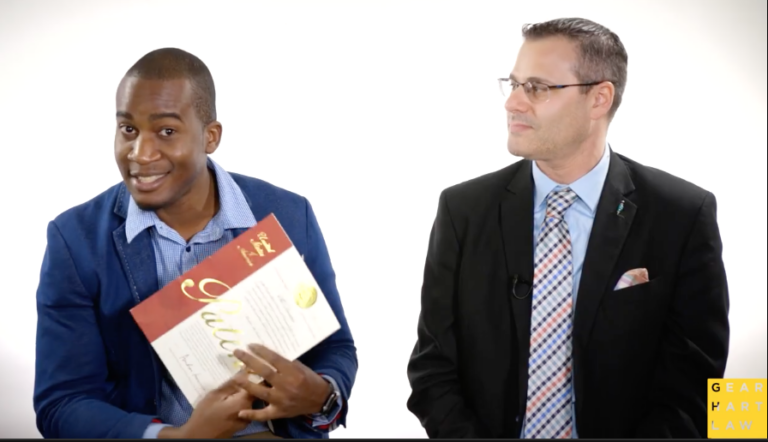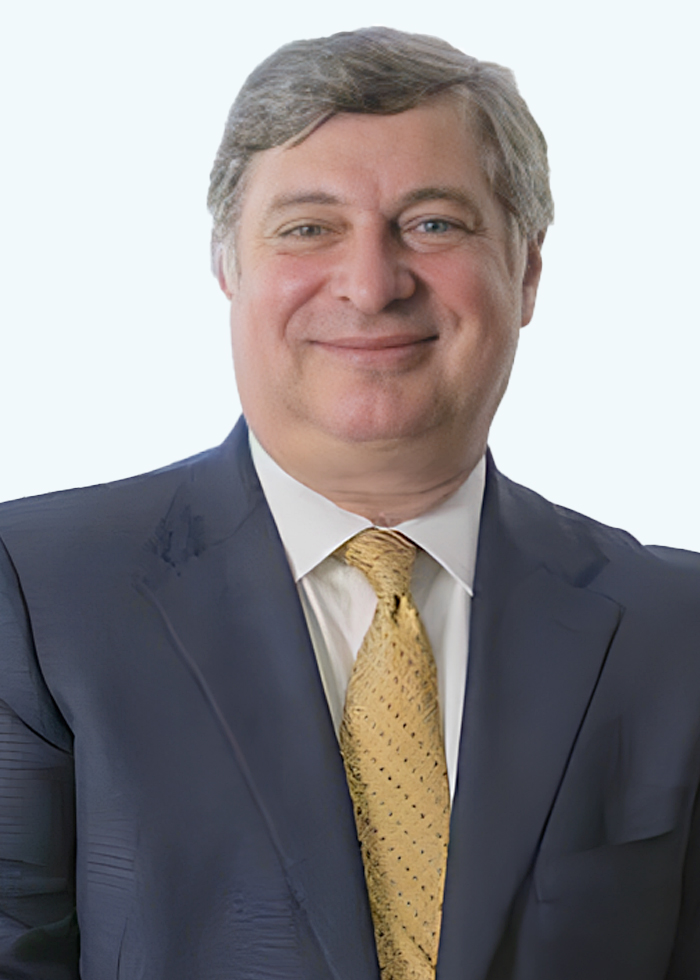Levaughn Denton, inventor and CEO of Zophonos, worked hard with David Postolski, partner and patent attorney at Gearhart Law, for three years to obtain a patent on his invention. In this video, David presents the hard copy patent from the USPTO to Levaughn.
David – Hi, my name is David Postolski. I’m a partner at Gearhart law and I’m super excited to present this patent to my client.
Levaughn – Thank you David. Hi, my name is Levaughn Denton and I am the founder of Zaffinos, Inc., which is a tech company that develops wearable and smart device solutions that help us make sense of the world around us. So it’s like a hardware and software patent.
David – Excellent and how did you find the process? I know it’s been going on for a few years, how was the process for you?
Levaughn – Definitely an arduous process. I didn’t know in the beginning what to expect. When I first met you it was actually at a conference, a USPTO conference I believe.
David – Yes, in Brooklyn, I totally remember that.
Levaughn – It was years ago and I remember you speaking and you said something really profound and really creative and I said, you know what? David is the patent attorney that I want to work with.
David – Tell me more! That’s awesome. I remember that Brooklyn meeting I remember it was a USPTO event. I remember we invited almost the pro bono community to some extent, and yeah, it’s been a long process. That was about four years ago perhaps. Your patent definitely was examined and rejected, I believe twice, which is par for the course.
Levaughn – Difficult to hear.
David – Yeah, difficult to hear for sure.
Levaughn – Especially if you don’t know what the process is. I also know that’s quite common.
David – Right. You will be rejected but that’s part of the examination. That’s not a bad thing, we want to be able to, with your help, to convince the Patent Office that their rejection was improper or not legally sound. And if we can do that, then the resulting grant that you get has gone through the scrutiny of the government and so you’re only going to end up with something that is strong.
Levaughn – Stronger. Yes especially when it comes to patent litigation, correct? They look at that scrutiny, the back and forth with the Patent Office. Yes, make a strong case.
David – Agree. People don’t realize the connection between patents in our court system but every patent is the exclusionary right that you may one day have to use in a court of law, and so it’s important that what we get you can stand up in a court of law. So yes it’s all related. So how was that for you, that kind of understanding that and learning that and then ending up with a patent?
Levaughn – Honestly it was a lot and I wanted to circumvent all of it, actually. I just wanted to fast forward to getting the issued patent but it was definitely a learning experience, the back and forth.
David – That’s great and can you talk a little bit about what your plans are for the future with your company?
Levaughn – I have a couple of product ideas related to my IP, so right now I am engaging VCs in Silicon Valley. This actually helps with the conversation because a lot of VCs want to see that strong IP foundation.
David – Yes I think that’s also part of the learning process as well, understanding the relationship between your patent grant and the ability for an investor to invest in something that they know has been stamped by the government is yours. That’s a strong, strong desire of theirs to invest in you. I wish you much luck with that, and that sounds pretty exciting.
Levaughn – With your help of course!
David – Yes, of course.


